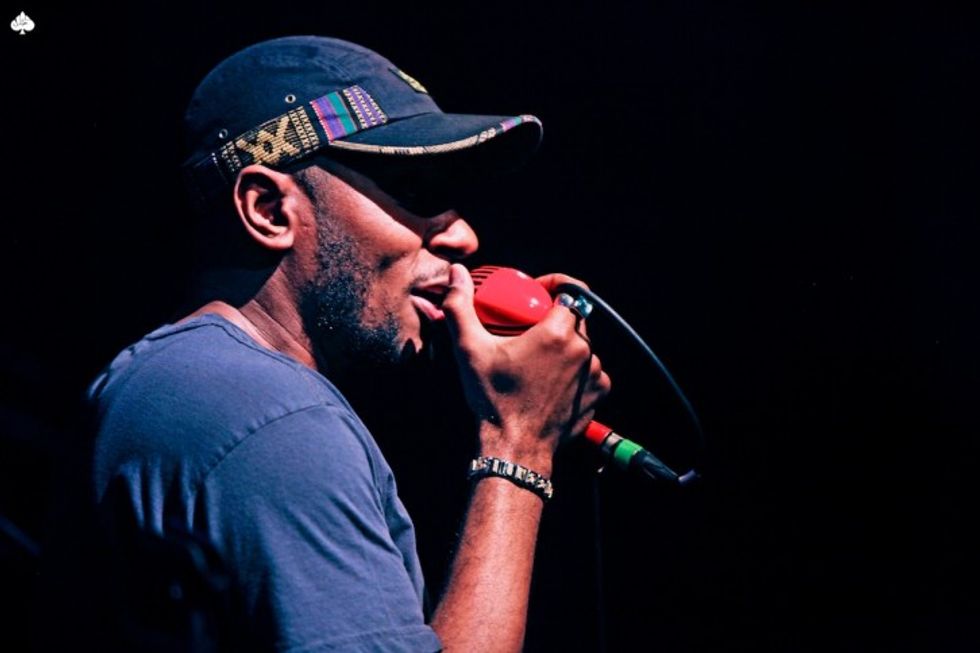Yasiin Bey Is The Hero We Need Now
By using the World Passport, Yasiin Bey is standing in solidarity with a global majority that are restricted from formal travel.

Yasiin Bey live at La Bataclan in Paris (Photo: Mr. Mass)
There may be no greater orthodoxy than the idea that we live as a community of nations, a globe divvied up by sovereign entities with a responsibility to their citizens. But when the contradictions in the system are properly documented and presented, we actually see something much different: that the rules that govern the affairs of nations are a facade, a sterile shroud covering much darker truths.
Many of us play along with the full-body scan, the pat down and the passport scan because we can’t imagine it any other way. Yasiin Bey is a prodigious musician and an actor but he is also an artist in the purest sense, looking for truth while exploring boundaries both moral and physical. The 2013 video of Bey undergoing a force feeding like those detainees in Guantanamo Bay is a visceral look at the darker corners of American policy and is consequently a powerful work of political art. It’s also, for this writer at least, incredibly hard to watch.
As an artist, Bey is not bound by the conventional. Right now the global media is trying to portray him, at best, as naive and, at worst, a criminal passing off fraudulent documents, but perhaps he is actually a hero—a quixotic hero to be sure—but a hero nonetheless. By renouncing his American passport, as South African media has stated, and opening himself up to prosecution under this broken system, he is giving us a look behind the facade and expanding the idea of what’s possible in the process.
We all innately understand that citizens of powerful countries have different rules of movement than those from the countries of the global south. The powerful move formally across the world with passports and visas ready. Everyone else must move across boundaries according to their wits. Many national land and ocean borders are crossed daily with no state interference. Sometimes this is an oversight other times it’s because many nations are simply too poor to field even the rudimentary checkpoints and bureaucracy needed to sustain the ruse.
All manner of people are trafficked across borders against their will. The rich world is just now waking up to the fact that slavery is rampant on the high seas.
People fleeing both physical and economic violence find their way across oceans and deserts, avoiding authorities, until they’re caught or surrender and are brought back into the formal system, packed into immigration detention centers and either deported or left to languish. There is also the world of black sites—neither formal or informal—extraordinary rendition programs and semi-secret military bases.
Even worse, in this globalized century, whole populations are sometimes bought, bartered and reimagined by states and other powerful institutions to fit the needs of global decision makers. Special economic zones and similar spaces of exception often come at the expense of the people they’re nominally supposed to benefit while enriching the powerful: organizations that think not in terms of humanity or even life, but in terms of commodities and flows, labor and output.
If Bey has indeed given up his American passport, then he has given up his formal connection to the rich world and sided with those on the bottom. He’s given up his paper allegiance to a nation state, The United States, that positions itself as the enforcer of this global hierarchy. By using the World Passport he has thrown his lot in with the idealists who believe a new system is possible. A system free from the hypocrisy of what exists now and toward something that acknowledges the humanity of everyone no matter where they were born.


